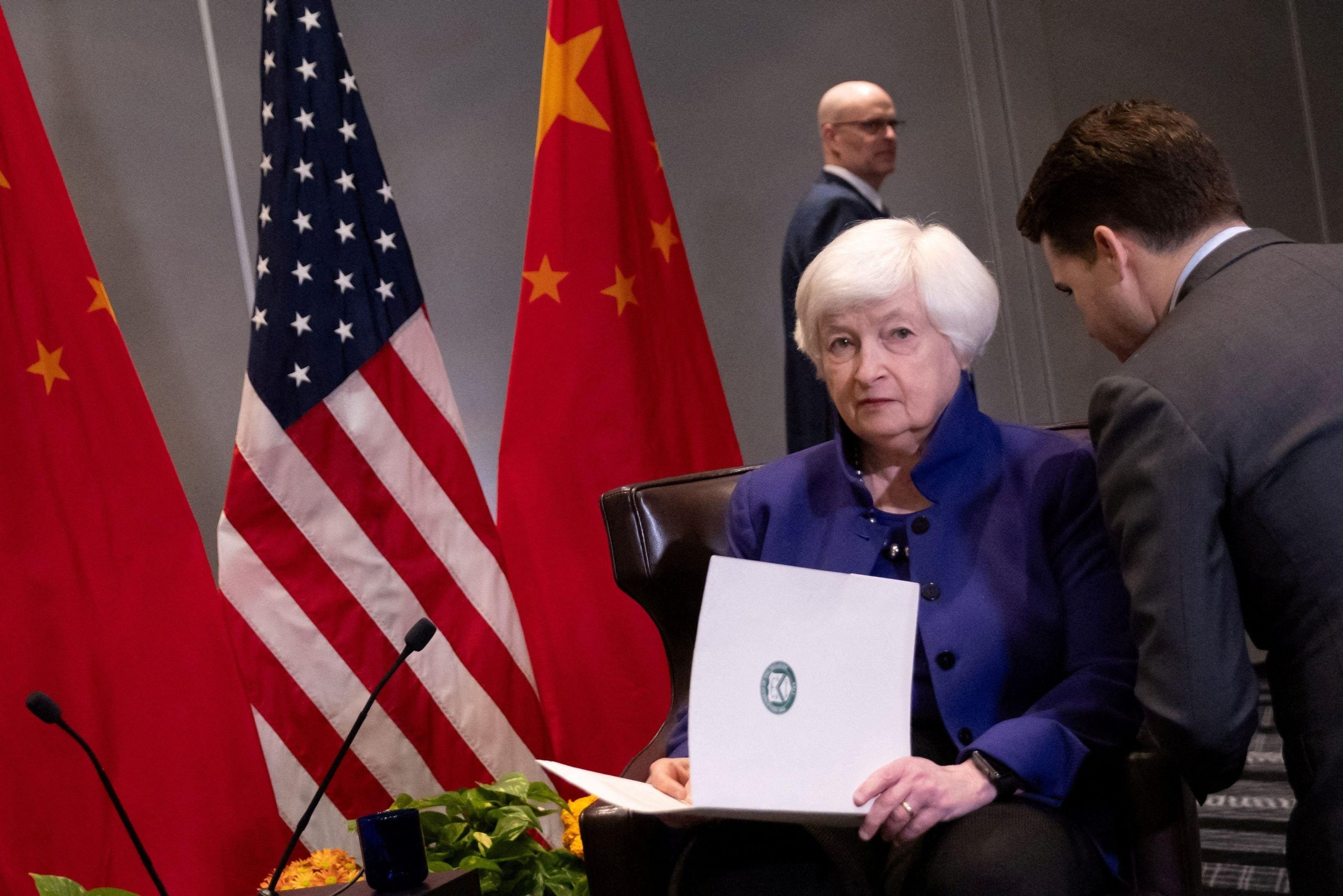As Treasury Secretary Janet Yellen embarks on a visit to China, the dynamics of the world’s two most powerful economies are under the microscope. Each seeks a competitive edge yet is cautious of escalating tensions.
Yellen’s journey, focusing on Guangzhou and Beijing, aims to discuss many contentious issues with Chinese financial leaders, reflecting a relationship at a crossroads, marked by strategic rivalry yet intertwined by undeniable economic interdependencies.
Yellen’s agenda is robust, addressing concerns over China’s substantial subsidies in the green energy sector, which the U.S. sees as a threat to global market equilibrium and its burgeoning domestic initiatives in renewable energy.
These discussions were revealed against the backdrop of President Joe Biden’s recent conversation with Chinese President Xi Jinping, which aimed to rekindle dialogue and manage the complexities of their nations’ interactions.

Janet Yellen (Credits: Moneycontrol)
Central to Yellen’s message is the assertion of a level playing field, especially in industries pivotal for future sustainability and economic growth. This visit marks a continuation of efforts to build upon the cautious dialogue initiated by Biden and Xi in 2022, underscoring the necessity of managing competition without veering into conflict.
However, underlying these high-level exchanges are a myriad of geopolitical tensions, spanning from trade disputes and concerns over TikTok ownership to critical issues surrounding national security and technological supremacy.
Yellen’s critique of China’s green energy push as market-distorting reflects broader anxieties over China’s global economic strategies and their implications for U.S. interests and market dynamics.
The backdrop of Yellen’s visit is complex, marked by a history of economic competition that has reshaped the global landscape, often at the expense of domestic industries and jobs in the U.S.
Yet, this competition extends into the domain of green technologies, where the Biden administration sees an opportunity for economic revitalization and leadership in the urgent transition to sustainable energy sources.

Treasury Secretary Janet Yellen (Credits: www.asahi.com)
As Yellen navigates these discussions, the specter of a contentious election year looms, with China a focal point of political rhetoric from both sides of the American political divide.
Yet, beyond the campaign trail’s soundbites lies a more profound recognition of the intricate balance required to manage this crucial bilateral relationship. Despite their rivalries, the United States and China remain deeply interconnected, a reality that Yellen’s visit seeks to navigate.
From addressing trade imbalances and environmental challenges to mitigating the geopolitical fallout of China’s stance on Russia’s actions in Ukraine, the dialogue in Beijing and Guangzhou represents a critical juncture in defining the future contours of U.S.-China relations.
Yellen’s mission is not just about airing grievances or challenging China’s policies but about seeking pathways to coexistence and competition that avoid the pitfalls of decoupling or conflict.
As the world watches, the outcomes of these discussions may well shape the global economic landscape for years to come, highlighting the enduring importance of dialogue, even despite deep-seated differences.























